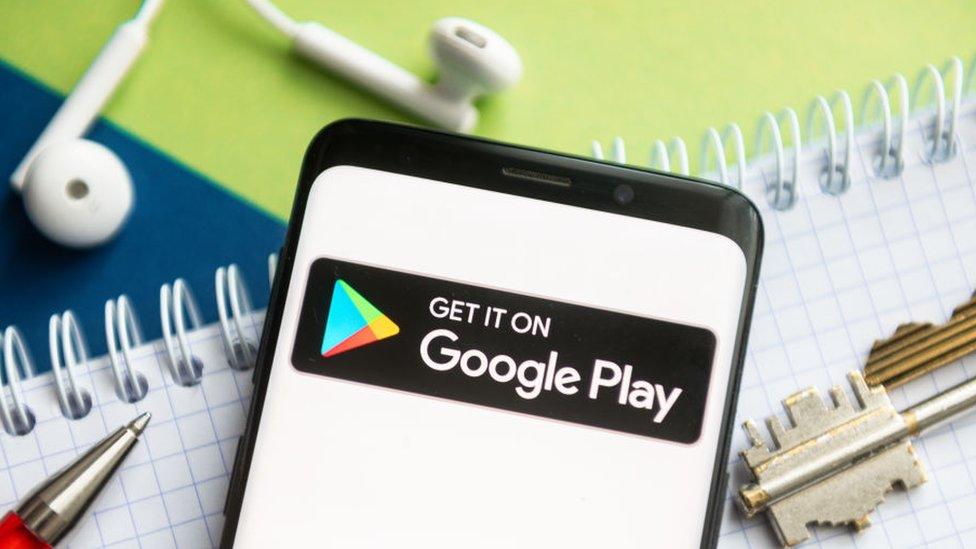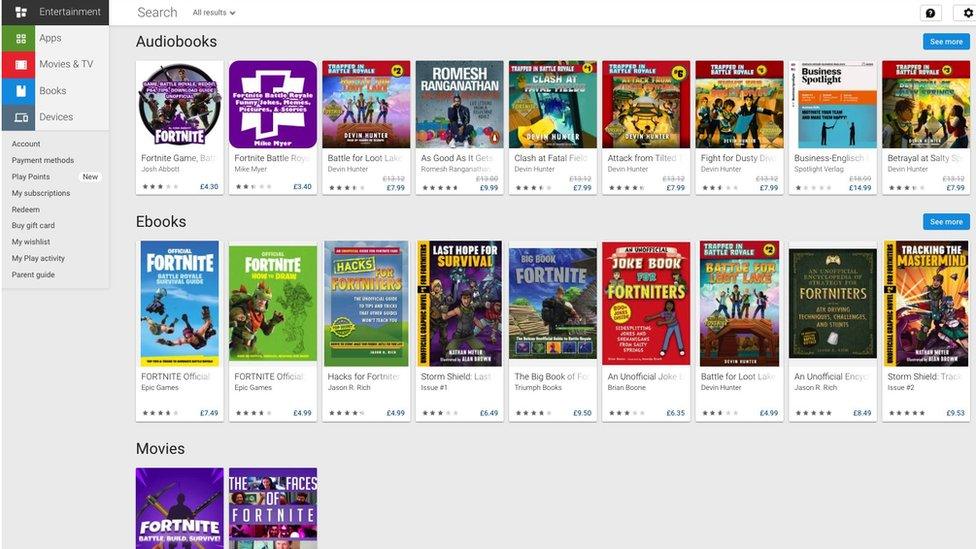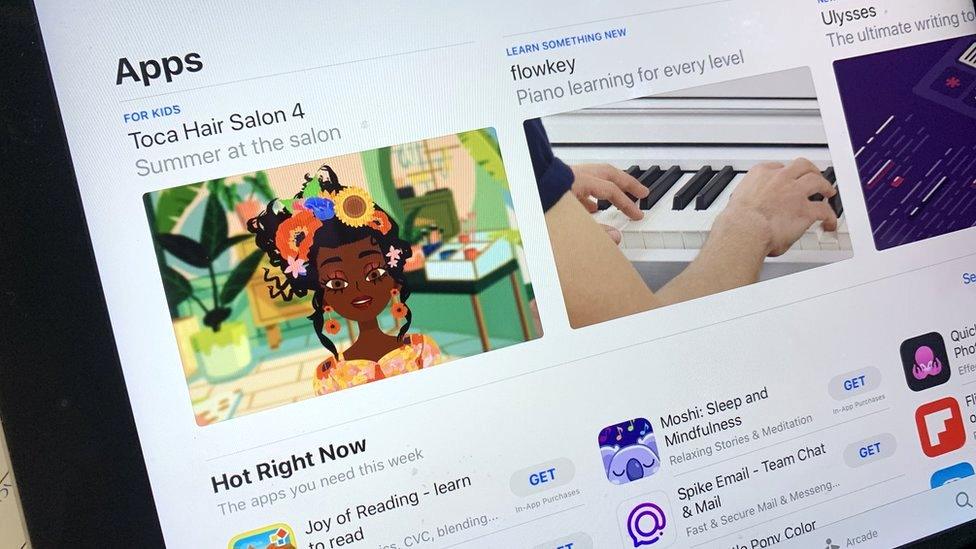Google Play store to cut fees for Android app developers
- Published

Google plans to reduce the fees it charges to feature Android apps within its Play store.
From 1 July, it will take a 15% cut from the first $1m (£720,000) in sales each year of the apps and any digital goods and services sold within them, rather than its current 30% commission.
It follows a similar step announced by Apple in November.
Regulators are investigating both of the big tech companies following claims of anti-competitive practices.
The situation for Google is slightly different in that it allows rival app stores to work on its mobile platform, and also makes it easier to install software by other means.
However, the fact that the Play store remains most Android phones' default option may be judged to give it an unfair advantage.
Games developer Epic is among those to have argued that both Apple and Google charge "exorbitant" fees, external.

Gamers can buy books and movies about the game Fortnite, but not download the app itself from Google's Play store because of a row over fees
Bigger payouts
In a blog, Google's vice president of product management defended its charges on the grounds that the company provided marketing tools and other resources to help developers succeed.
But Sameer Samat acknowledged taking developers' "input into account" over the matter.
The firm said 99% of global Android developers did not earn over $1m a year, so would benefit from a 50% reduction in fees.
Those that do earn more should find the scheme to be more generous than Apple's, it added.
Google's 15% rate will apply to the first $1m of sales a developer makes each year regardless of their total earnings, with the remainder subject to the 30% fee.
By contrast, Apple only offers a 15% rate if a developer's net sales fall below $1m. As soon as they surpass that limit, all earnings are subject to the higher charge.
Apple issued the latest defence of its own practices on Monday, when it said more than 330,000 jobs in the UK alone, external were supported by its App Store.


It's a fast-growing industry, key to the infrastructure of the digital economy - and dominated by two giants which control access and prices.
In any other business than mobile apps - say electricity or communications networks - you would expect such a duopoly to be subject to strict regulation.
But until recently Google and Apple have felt free to do what they want.
Now they have had to respond to pressure from developers for a better deal - though it's doubtful if they'd have acted if regulators, particularly in the EU, had not begun to show an interest.
Google appears to have outbid Apple when it comes to cutting fees for developers. But both companies can easily afford to be more generous.
It's estimated that mobile app revenues grew by 30% in 2020 - and the tech giants took a healthy slice of that.
Don't expect the Brussels regulators to step back and say "job done".
- Published4 March 2021

- Published15 January 2021

- Published18 November 2020

- Published22 July 2020
